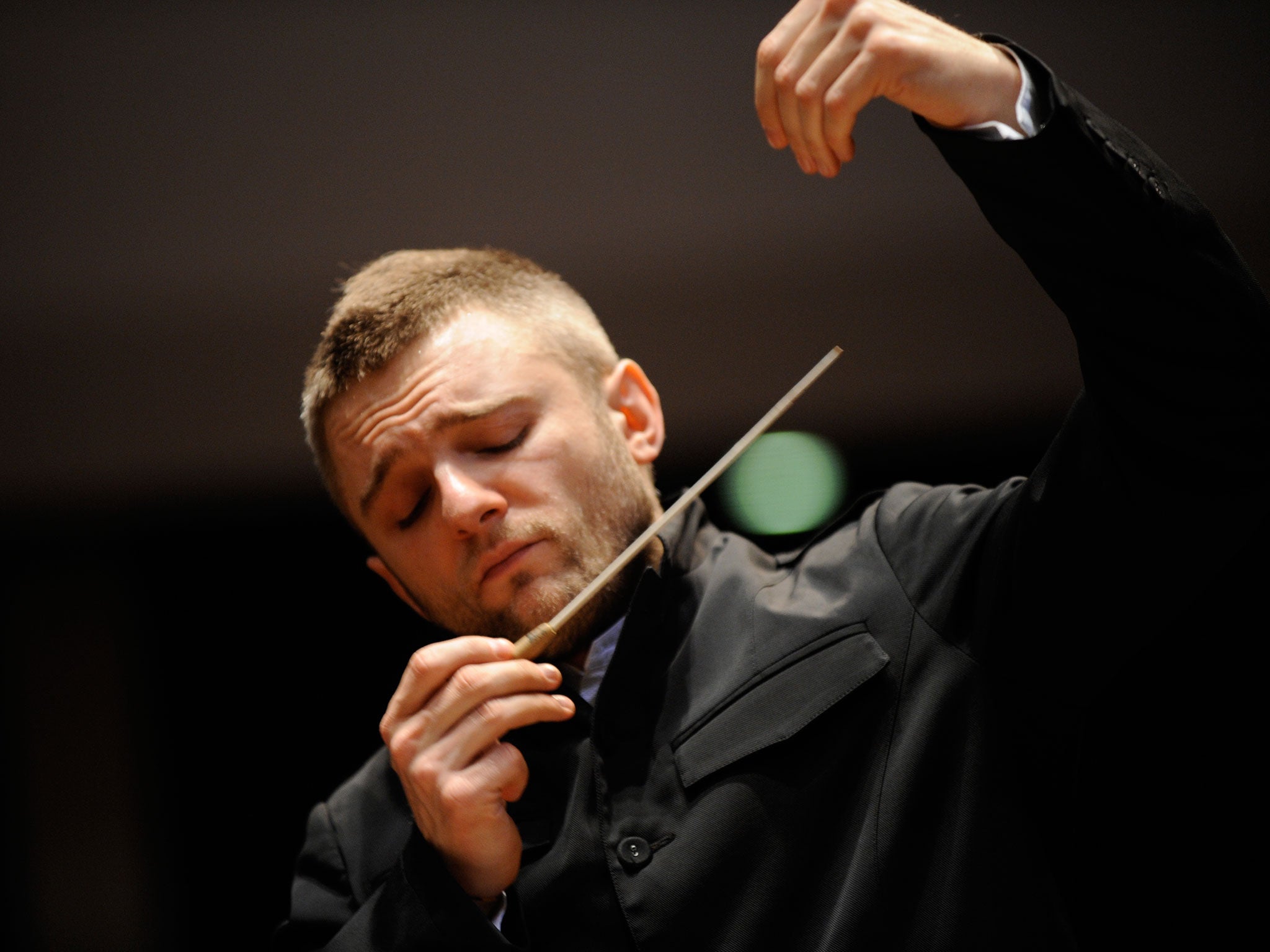Edinburgh International Festival plays host to Russian symphony - with Ukrainian conductor

The Edinburgh International Festival this year features a Russian symphony about the triumph of human spirit in times of conflict played by an orchestra headed by a Ukrainian conductor in “solidarity with the tragic situation” unfolding in the former Soviet Bloc country.
Kirill Karabits, a 37-year-old Ukrainian, is to conduct the I, Culture Orchestra, made up of young musicians from the former Soviet and Eastern Bloc states, next weekend.
Sir Jonathan Mills, ahead of his last festival as director, said: “Sadly there is no end of examples of conflict in today’s world. Gaza is at the forefront of our minds but close behind that is the tragic situation that is unfolding in Ukraine, most recently through the senseless loss of life on the missile attack on MH-17. Think of this as a symbol of our moment as an alternative to the political agendas.”
They will play Shostakovich’s Symphony No 7 ‘Leningrad’ written during the gruelling 900-day Nazi siege of the city during the Second World War. The publicity material for the concert said the piece had “come to symbolise the triumph of the human spirit in times of conflict”.
Sir Jonathan said: “This is a symbol of lots of solidarity and connection and respect. We have history being recreated for the first time by musicians from very different cultures paying respect to the sacrifices of the Russian people.”
The festival director said it was about creating moments of “intense symbolism” adding: “Is it going to change the world? No. Will it give us pause to think? Hopefully. In the aftermath of any conflict the politicians and bean counters don’t have the answers.”
One of the major themes of the festival is the relationship between culture and conflict. He said: “History tells us time and time again, culture is the only thing that restores and rebuilds from the ashes a sense of life and community we might have.”
Sir Jonathan’s final festival opens today with 13,000 tickets sold for the first weekend, for performances including Britten’s War Requiem, Ladysmith Black Mambazo’s festival debut and The James Plays by Rona Munro. It runs until the end of the month and will bring 2,400 international artists to the city.
He admitted there was an “element of being demob happy, but there are a thousand things to attend to before I leave. It won’t hit me properly until I leave in September.”
Looking back over his eight years in charge, he said: “In 2007 when I started, the world was somewhat different. We had to interpret, or reinterpret for the moment about what an international festival meant.”
Under Sir Jonathan it became less focused on Europe “and more on a globalised world and the power of telecommunications and technology. When my predecessor started, the World Wide Web had not even been invented.”
The festival will end with Sandakan Threnody, a piece composed by Sir Jonathan himself that honours for the 2,500 British and Australian prisoners of war who lost their lives in the death marches in North Borneo in the Second World War. “It seemed a nice way to say farewell to the festival in a year we are commemorating those conflicts.”
Subscribe to Independent Premium to bookmark this article
Want to bookmark your favourite articles and stories to read or reference later? Start your Independent Premium subscription today.

Join our commenting forum
Join thought-provoking conversations, follow other Independent readers and see their replies